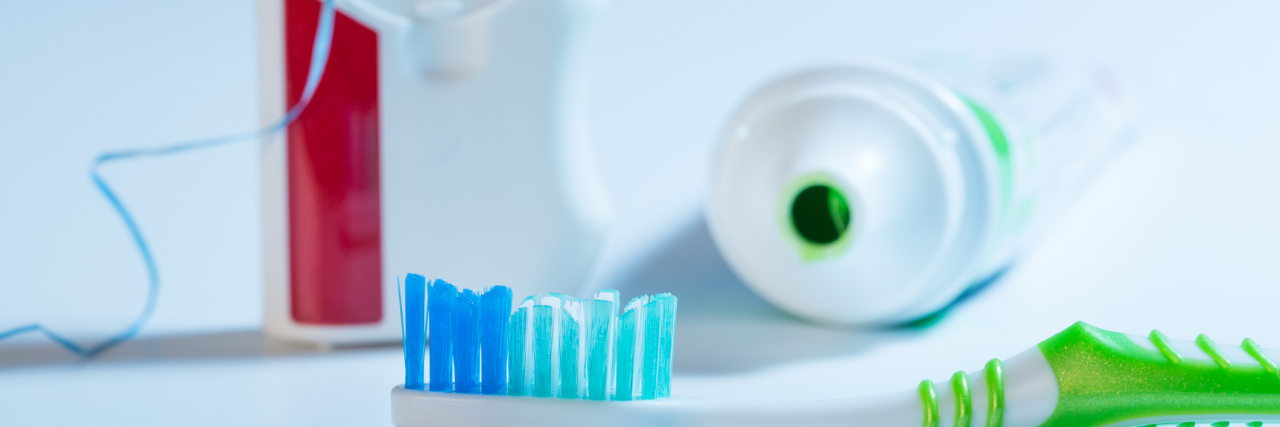The Surprising Ways Crohn’s Disease Can Affect Your Oral Health
Editor's Note
Any medical information included is based on a personal experience. For questions or concerns regarding health, please consult a doctor or medical professional.
Our mouth is part of the digestive tract. Diseases such as Crohn’s and ulcerative colitis, as well as other stomach issues, can worsen oral health. Malnutrition and anemia due to impaired absorption of vitamin B, D, folic acid, iron and other critical nutrients can cause serious oral health problems. Patients can develop painful canker sores, irritated gingival tissue (the area around the root of the tooth that helps keep it in place), mucosal tags found on the membranes around the inside of the cheek, gingivitis and salivary glands that don’t produce enough saliva, which can increase the risk of cavities, secondary decay and bad breath.
To treat these conditions the dentist or doctor can do/suggest one or more of the following:
1. Prescribe a topical steroid, hydrocortisone ointment or vitamin supplements. They might also recommend dry mouth products and increased oral hygiene care.
2. Fluoride rinses, fluoride varnish treatments — these are used for root cavity prevention.
3. Baking soda-based toothpaste to treat high cavity risks and low saliva production.
The medications we take to slow the progression of IBD and control the symptoms also create a new set of problems. Antibiotics, biologics and steroids can all affect oral care. Prolonged steroid use can lead to bone loss, which can break or chip teeth easier. Dry mouth can lead to tooth decay and infection. If there is any type of problem, it needs to be addressed. If left untreated, bacteria could enter the bloodstream and cause serious conditions, such as plaque build-up in the arteries that harden, blood flow problems, heart blockages and heart disease.
One of the main reasons patients with Crohn’s don’t get the proper care they need is due to being uninsured. There are several options available that offer free or reduced-rate treatments for dental care:
1. Dental schools
2. Public dental clinics
3. Free dental clinics
4. Nonprofit clinics (you can search on United Way’s 211.org, for example)
5. Donated services
a) Dental Life
https://dentallifeline.org/about-us/our-programs/
b) Mission of Mercy
https://adcf.net/attend-volunteer/
6. Private dentists
Some may handle a few cases a year for free. They may accept referrals from other dentists who are trying to help a patient who needs a lot of oral treatments but can’t afford them.
7. Government Dental Coverage
Check to see if you’re eligible for Medicaid or Children’s Health Insurance Program (CHIP). There is no charge of monthly premiums, and it covers dental care in full for children up to age 19.
For further information on available assistance:
https://www.webmd.com/health-insurance/uninsured-free-low-cost-dental#2
Oral care in Crohn’s disease patients can be affected by a flare-up or the medications used to keep symptoms under control . This can cause a variety of issues, including infections. If left untreated, it can get into the bloodstream and create serious complications. For uninsured patients, there are many options available to get the necessary dental care they need. Don’t wait until it’s too late. By then, the damage could already done, or worse. The dentist can only do so much during an appointment. In between check-ups, it’s up to the individual to have a daily routine to keep their smiles healthy.
Getty image via Fototocam.

